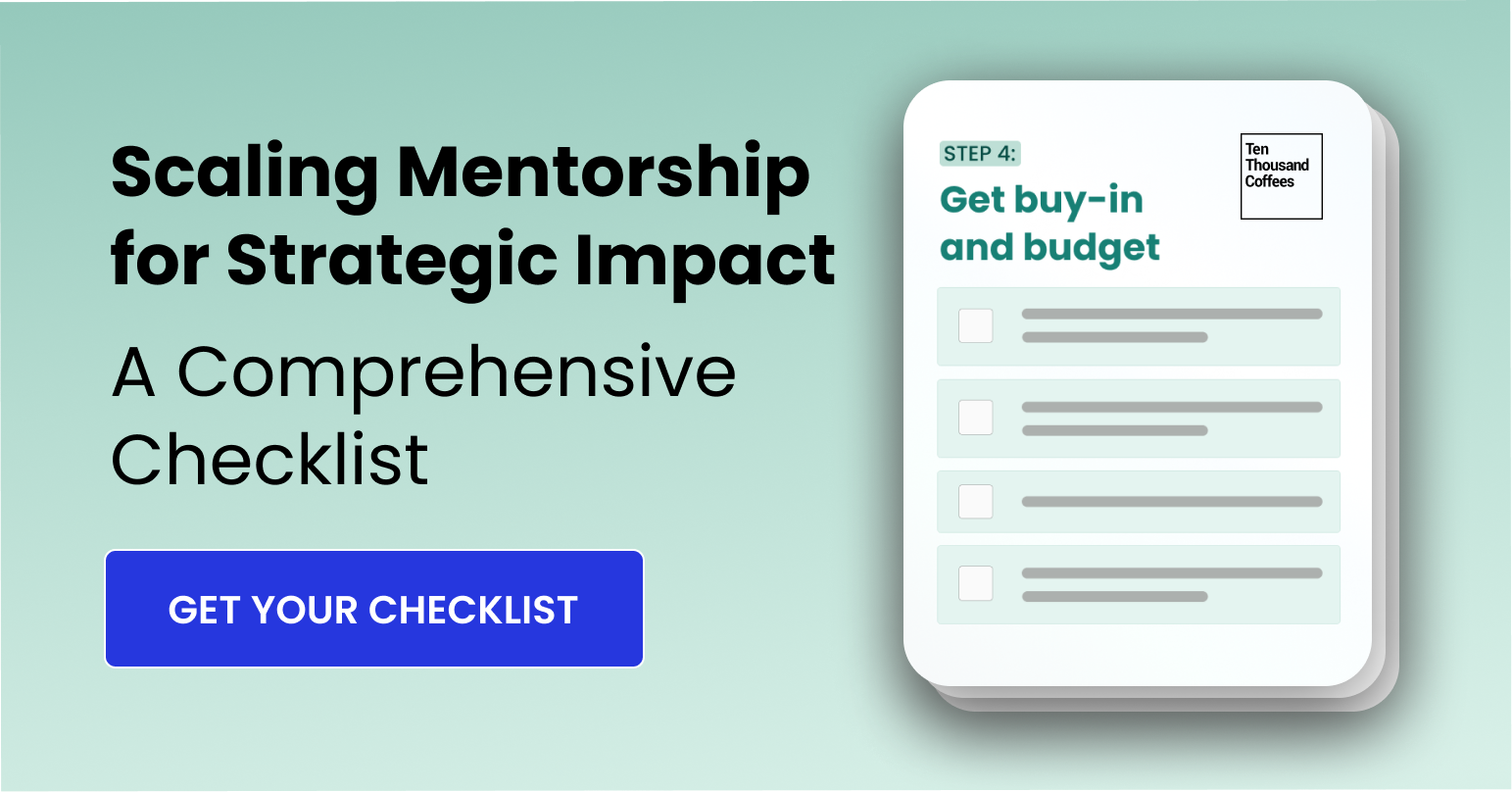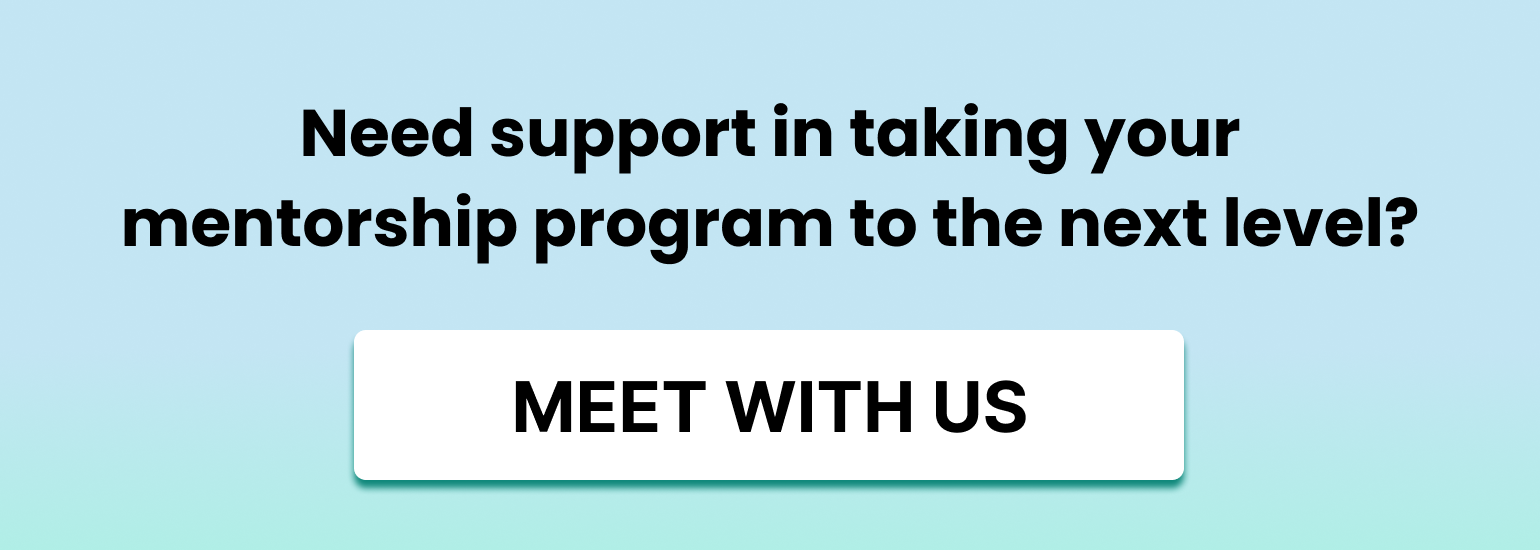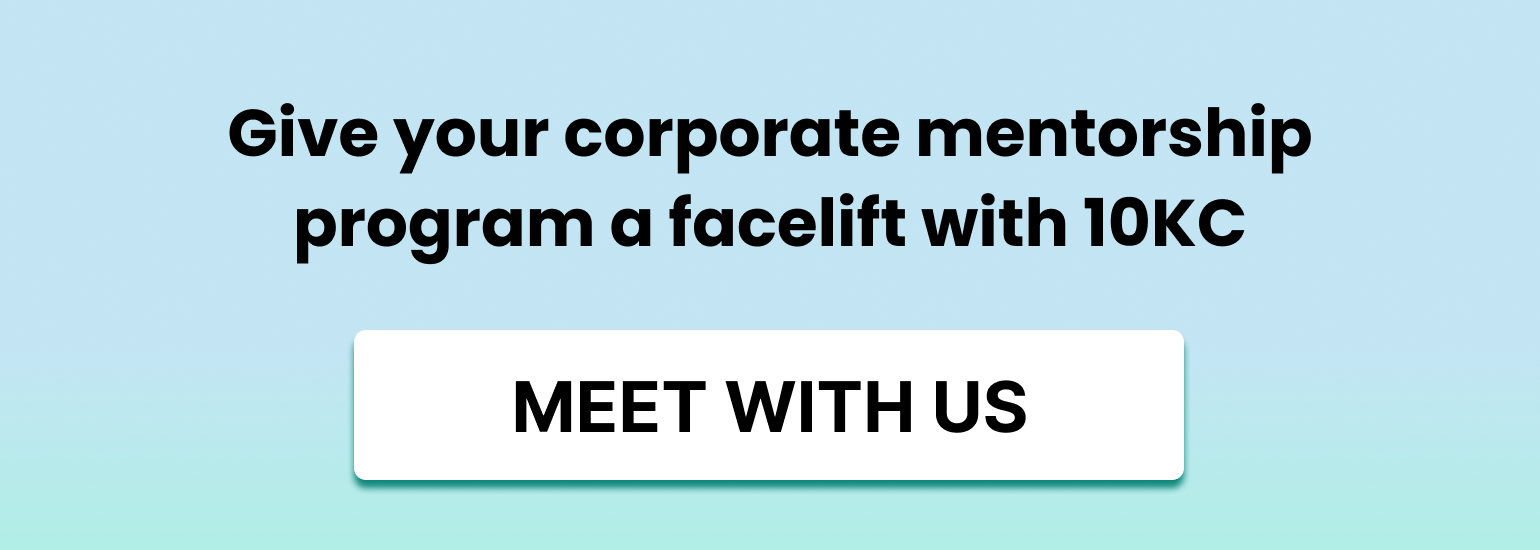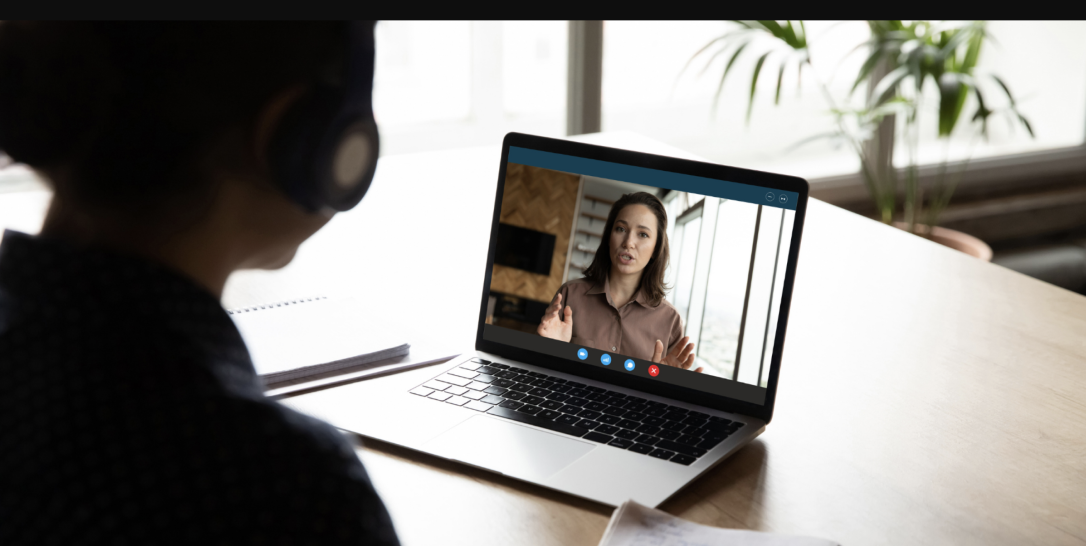Corporate mentorship programs are a powerful tool for achieving critical talent outcomes. They have the power to boost company culture, improve employee retention and engagement, and develop high-performing teams.
But, like any business initiative, the outcomes of mentorship are only as successful as the strategy you have in place. And if we’re being honest: the old way of mentorship just isn’t cutting it for the modern workplace.
In this article, we’ll take a deep dive into identifying missed mentorship potential and how you can upgrade your program to better meet your talent and organizational needs.
Signs your mentorship program just isn’t working anymore
Many organizations struggle to realize the full potential of their programs. Are you investing time and resources into a mentorship initiative that's falling short? It's time to reevaluate.
While the intention may be there, a program that lacks strategic alignment, struggles with engagement, or fails to deliver measurable results is holding you back. Here are a few signs that your mentorship program might not be as effective as it could be.
Lack of alignment with broader talent goals
Saying you have a mentorship program is one thing. Having one that has a measurable impact on broader talent goals, such as employee development, mobility, and retention? So much better.
Despite 98% of Fortune 500 companies boasting mentorship programs, they’re still often treated as a ‘feel-good’ initiative. Mentorship certainly plays a role in bolstering employee sentiment, and this is critical. But relying solely on this metric for ROI misses the bigger picture.
To secure ongoing investment and drive strategic talent outcomes, people teams must go beyond measuring feelings.You need to demonstrate how mentorship directly impacts key business goals like retention, promotion, and skill development. Without this data-driven approach, the full potential of mentorship remains untapped, leaving stakeholders unconvinced of its true value.
Low adoption or enrollment
No matter how well designed your mentoring program is, the impact is limited by the employees that you’re able to reach.
Employees want mentors. In fact, according to HBR, 3 in 4 people would say that mentorship is important. So if you’re struggling to fill your mentorship program, it’s likely a symptom of poor promotion or lack of strategic alignment.
Employees can’t enroll in something they don’t know exists. Is your mentorship program integrated into overall HR & talent development strategies, presented at onboarding, or discussed in meetings with high visibility?
Plus, if mentees and mentors aren’t aware of how it benefits them, they’re going to skip out in favor of allocating their time for other things. Every employee’s time is valuable, so they’re going to prioritize the tasks and initiatives in their work day accordingly to reach their own goals.
Low match quality
Random pairings are a gamble—and often a losing one. While any connection can offer a learning opportunity, truly impactful mentorship thrives on strategic alignment. When mentor-mentee match quality is low, the potential for growth and development is severely limited.
Low match quality manifests in several ways: Mentees may feel their mentor doesn't understand their challenges, mentors may feel they lack the expertise to guide their mentee, or conversations may feel generic and unproductive. This leads to disengagement, wasted time, and ultimately, a program that fails to deliver on its promise.
Low program engagement
A mentorship program only works if employees are engaging as intended, whether that’s reviewing the provided resources, having effective conversations, or showing up for various mentorship experiences.
Even after they agree to participate, if mentorship feels like a burden, employees are unlikely to see it through. This can happen for a variety of reasons. They might feel like it takes up too much of their time or it doesn’t fit with their work day. Or they simply might find the program irrelevant—which can be a sign of poor quality matches or program resources.
The value an employee feels they’re getting out of their mentoring experience needs to meet or exceed the effort it takes to engage with it. Effective and engaging mentorship programs are able to strike that delicate balance, so employees want to participate.
Administrative inefficiencies
Many mentorship programs end up being buried in spreadsheets and manual processes.
But mentoring shouldn’t feel like an unsustainable burden. When program managers are saddled with administrative inefficiencies, it’s impossible for mentorship programs to reach their full potential. It’s nearly impossible to scale your mentoring program and, frankly, wastes all-too-precious organizational resources.

How to identify issues with your mentoring program
While your mentoring program might excel in some aspects and fall short in others, traditional mentoring models often prove insufficient for today's complex talent challenges. They lack the dynamism, comprehensiveness, and scalability needed to achieve critical talent outcomes and sustain organizational impact.
To pinpoint areas for improvement in your existing mentorship program, consider these key steps:
1. Evaluate program management and scalability
Start by assessing the administrative burden. If your program consistently operates at maximum capacity and program managers are stretched thin, it's a critical red flag. Technology and automated tools can eliminate inefficiencies and enable effective scaling.
2. Analyze program health
Dive into your data. Examine key engagement metrics to provide valuable insights into program effectiveness, like:
- Enrollment numbers: Are you reaching enough people?
- Match success rates: Are pairings effective?
- Meeting frequency: Are participants engaged?
- Survey completion rates: Are you getting feedback?
- Program completion rates: Are people finishing the program?
3. Gather participant feedback
Don't rely solely on quantitative data. Actively solicit qualitative feedback from participants. Review regular survey results, conduct dedicated feedback surveys, hold interviews or listening circles, and even survey eligible non-participants to understand their reasons for opting out.
💡READ MORE: How to Use Mentor Surveys to Show Mentorship Program ROI
4. Assess program structure and materials
Evaluate the relevance and effectiveness of your program's conversation guides and curriculum. Ensure they align with the program's overall goals and objectives, as well as the needs of your key talent segments. If necessary, update them to reflect current best practices and organizational priorities.
💡Don’t have program-specific content? Build your program materials with 10KC.
5. Measure impact on individual participant goals
Mentorship should empower employees to achieve their personal career goals. Use program surveys to gauge if employees are meeting their goals and how they perceive their development progress.
6. Evaluate impact on business and talent outcomes
A successful mentoring program should positively impact key talent objectives like engagement, retention, internal mobility, and promotion rates. If these metrics aren't improving, it signals a potential misalignment between your program and your desired outcomes. Remember, even highly successful programs may go unnoticed if their impact isn't measured and communicated effectively.
💡READ MORE: How to Measure the Business Impact of Corporate Mentorship Programs

8 best practices for your corporate mentorship program
Without an effective strategy in place, corporate mentorship programs can slip through the cracks. Let’s look at some key strategies and best practices for building and improving your mentoring program.
1. Define clear goals for mentorship
Understanding which objectives your organization is targeting through mentorship is arguably the most important piece of the mentorship puzzle. Without knowing what you’re working toward, it’s impossible to determine efficiency or success.
Take the time to ask yourself what it is that you’re trying to accomplish through mentorship. Is it bolstering leadership development? Increasing employee engagement? Creating a more inclusive company culture?
Then take those objectives and identify the relevant leading and lagging metrics so you can set measurable benchmarks to track progress and make adjustments along the way.
💡 Remember: Employees can be a valuable resource for understanding their priorities. Include them in the conversation through surveys or focus groups to understand their needs, goals, and preferences.
“Build around your team members. Make sure that this is something that they want and need. I think oftentimes HR departments tend to implement programs just because it's what's done. The “let's just do it because that's what we do” mentality just doesn’t work for the ever-evolving needs of today’s workplaces.” - Michelle Rojas, Associate Director of Diversity, Equity, and Inclusion, Spring Health
2. Maximize impact with unique pathways for different talent segments
Single-track, generic mentoring programs only get you so far.
By taking a personalized approach, you can create an experience that better addresses the needs of your different talent groups. This includes targeted guidance and tailored content that addresses the unique skill requirements and key competencies of every employee.
This personalized approach directly supports your key talent goals, driving engagement, retention, mobility, and development. A generic program simply can't achieve the same results.
Examples of unique pathways can include:
- Early career development: Accelerate integration and help early talent navigate the early days of their careers.
- Mid-career growth: Put employees in the driver’s seat of their careers with the resources they need to advance to the next stage of their careers.
- People management: Give leaders the tools they need to effectively lead and develop high-performing teams.
- Leadership development: Develop critical leadership competencies and prepare high-potential talent for leadership responsibilities.
📌 READ MORE: The Impact of Mentorship Across the Employee Lifecycle
3. Ensure effective mentor-mentee matching
Take mentor-mentee matching out of your spreadsheets and opt for strategic matches based on employee and organizational goals.
Rather than simply pairing employees at random, you match employees with relevant peers and experts based on organizational context and criteria, such as:
- Team, department, and seniority
- Talent segment (e.g. high-potential talent, successors, early talent)
- Location and time zones
- Skills and experience
- Interests and career goals
While it sounds complicated, smart-matching algorithms and technology enable program managers to make these strategic connections at scale. They can also eliminate bias that can come with manual matching.
Staying on top of employee feedback during and after their mentoring experience can also help ensure that you’re serving up high-quality mentor-mentee matches.
4. Diversify mentoring experiences
The traditional top-down, one-on-one approach to mentorship is only one way of leveraging social learning in your talent development initiatives. An effective mentorship program can—and should—encompass different types of mentoring.
Diversifying your experiences casts a wider net, so employees can learn from more peers while taking advantage of the format that works best for them.
Explore a variety of approaches, including:
- One-on-one mentoring, including reverse and cross-functional mentoring
- One-to-many mentoring and group learning experiences
- Cross-functional mentoring
- Peer-to-peer networking
- Skills-based networking
5. Equip participants with the right resources and structure
The personal and organic nature of mentoring is one of the reasons it has the potential to make such a large impact on talent development.
But there is such a thing as too much freedom in mentorship. When mentoring is left up to mentors and mentees, experiences can vary dramatically, creating inconsistent outcomes.
The best way to ensure your mentorship program stays effective is by providing the right balance of structure and resources to keep employees engaged and on track. For example, discussion guides and expert-backed curriculums can keep conversations focused on the topics that matter most.
Pre-determined formats for connections, such as meeting cadence and length, can keep employees engaged. And resources for being a better mentor and mentee can unlock more effective mentor-mentee relationships.
6. Maintain consistent communication for engagement
Employees should be empowered to take control of their mentorship experience and learning. But keeping employees engaged is still a two-way street.
With all-too-busy employees, gentle reminders and communication are key to keeping everyone on track.
Identify and stick to the most effective channels to reach your target employee groups, whether it be email newsletters, Slack, social media groups, presentations, or in-person events. And make sure to keep participants informed and engaged throughout the program with regular updates, reminders, and opportunities for feedback.
7. Provide ongoing support and guidance
Set-it-and-forget-it doesn’t work when it comes to effective mentorship programs. In order for employees to make the most out of their experience—and to reach your talent goals—you need to support employees every step of the way.
Training sessions for participants can help employees learn active listening, goal setting, and feedback techniques that can foster stronger mentor-mentee relationships. Just like the other competencies they’re developing through your talent initiatives, being a mentor or mentee is a learned skill.
It’s also important to have a process for participants to access support along the way, whether that’s through online resources, FAQs, or access to a dedicated program manager. And make sure to check in from time to time to ensure participants have everything they need to be successful throughout their mentorship experiences.
8. Measure outcomes, iterate, and celebrate wins
Making improvements to your mentorship program is just the first step. You need to make sure those changes have charted you in the right direction.
This includes tracking the key metrics you identified earlier on, collecting employee feedback, and drawing insights to inform future improvements to your mentorship program. An iterative process will help you demonstrate the value of your mentorship program and ensure its continued growth and effectiveness.
💡 Remember, in order to showcase the benefits (and the ROI to prove it) you need to be able to tie mentorship back to your talent goals. Effective mentoring has the potential to impact:
- Employee engagement scores: Employees with a mentor are twice as likely to be engaged in the workforce than those without.
- Internal mobility and promotions: Organizations with an agile strategy for high-potential talent are 70% more likely to have a strong succession bench.
- Employee retention: 94% of employees say they would stay at a company longer if they were offered opportunities to learn and grow.
- Employee development and performance: 75% of executives say mentoring has been critical to their career development.
And of course, make sure to take the time to celebrate all the mentorship wins along the way.
“Being able to make this investment requires a clear ability to talk about the ROI. [...] And so tech enablement through platforms like 10KC make measurement and monitoring pretty seamless in how we do the work.” - Jarvis Sam, former Chief DEI Officer of Nike
📌 READ MORE: How to Measure the Business Impact of Corporate Mentorship Programs
Choosing the right corporate mentoring software
Purpose-built mentoring software, like 10KC, is designed to help organizations meet the needs of the modern workplace through mentorship.
When choosing mentorship software for your new and improved mentorship program, look for features like:
- Smart-matching algorithms: Skip the spreadsheets and connect employees with relevant mentors, peers, and experts at scale—without burdening your program managers.
- Discussion guides: Accelerate learning outcomes with off-the-shelf content designed to help employees sharpen in-demand skills for every talent group.
- Purposeful mentoring experiences: Serve up multiple mentoring experiences in a variety of formats from 1:1 development to group learning, to meet the unique needs of every employee.
- Robust reporting and analytics: Put the impact of mentorship under the spotlight, with visibility into mentoring data and key metrics like employee engagement, development, mobility, and retention.
- Integrations with your existing tech stack: HRIS integrations bring your employee data directly into your mentorship program. Integrations with the tools you use every day—such as Slack, Zoom, Microsoft Teams, or Google Calendar—make connections and collaboration easier than ever.

Corporate mentorship best practices FAQs
What is a corporate mentorship program?
What’s the purpose of a corporate mentoring program?
The purpose of a corporate mentoring program is to create employees to gain knowledge and advice from more experienced peers and counterparts, improve professional skills, build networks, and feel connected.
When implemented successfully, corporate mentoring programs can go beyond individual career aspirations and help organizations achieve larger talent goals, such as employee engagement, development, retention, and mobility.
What are common challenges with managing corporate mentoring programs?
Common challenges that come with managing corporate mentoring programs can include:
- Manual processes and administrative burden.
- Poor stakeholder buy-in.
- Lack of promotion and communication.
- Low employee adoption, participation, and employee engagement.
- Lack of visibility into impact.
- Limited reach within the organization.
Mentoring software, like 10KC, is designed to help organizations minimize these challenges and create effective mentoring programs.
What makes an effective mentoring program?
An effective mentoring program:
- Has clearly defined goals and objectives
- Supports different talent groups and segments
- Prioritizes meaningful mentor-mentee matches
- Offers a diverse range of mentoring experiences, from 1:1 learning to group mentorship
- Provides ongoing support for participants
- Measures progress and KPIs
- Iterates and optimizes based on data and employee feedback.









.png)